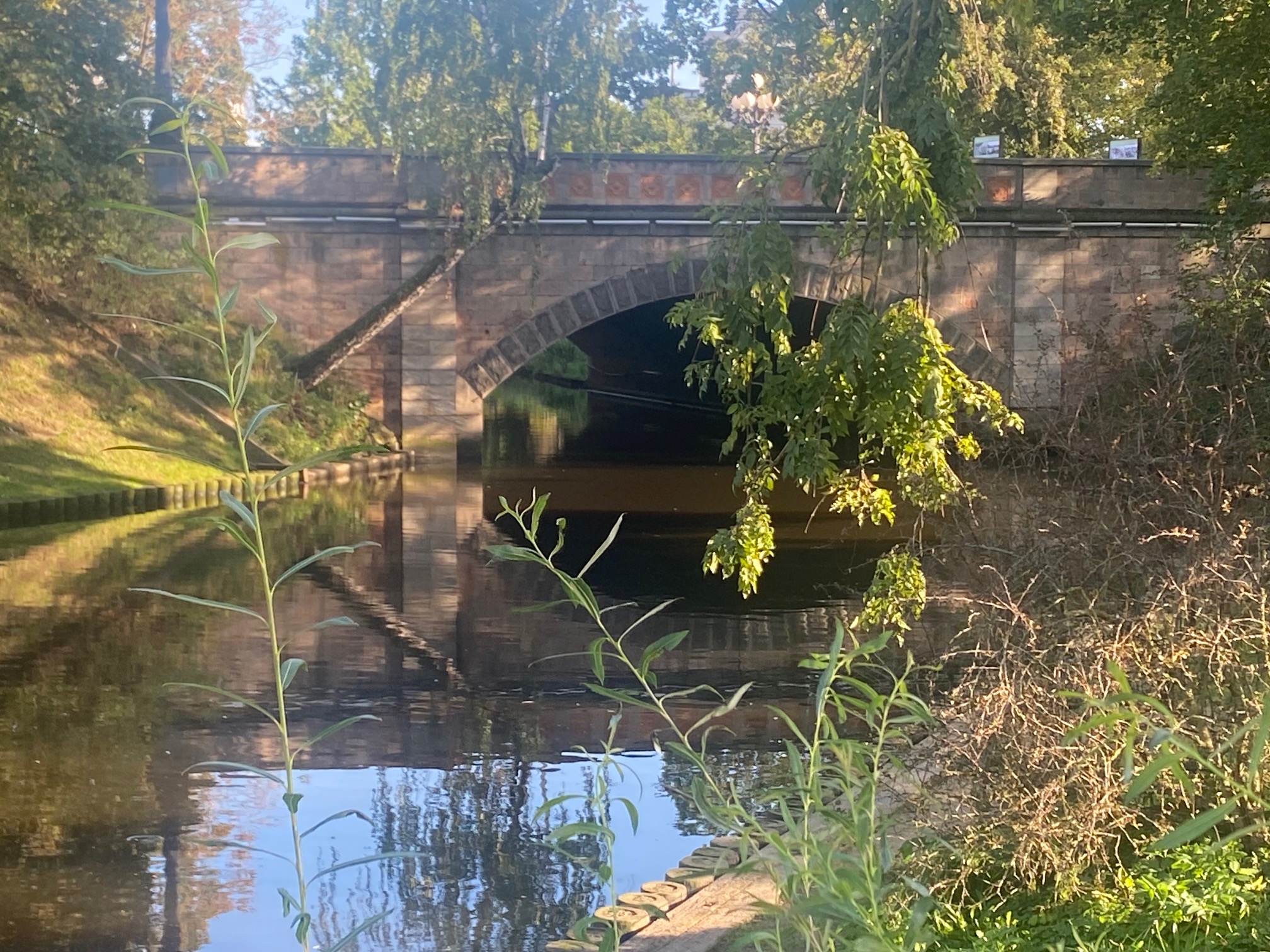Pilsētas kanāls.
The canal is lined
with horizontal wooden beams
behind vertical logs.
The water is calm,
littered with early autumn leaves.
I wander the canal trail,
past cyclists and pedestrians,
lost in the plot of a book
I’m currently reading.
I am often doing one thing
and thinking about
what might happen next
in the unfinished novel
sitting on my bedside table.
A tour boat drifts by with a soundless motor,
but my solitude is disrupted
by the monotonous drone
of the taped speaker telling the tourists
interesting things about
what they are seeing from the boat.
I realize the boat pilots
do not even need to speak the language
of the taped narrator.
They only need to know
where the boat needs to be
at certain intervals in the narrative.
Indeed, I hear one tourist ask the pilot
a question, but he shakes his head.
He doesn’t understand the inquirer’s language.
I think about Riga,
about the Baltic states in general –
Estonia, Latvia, Lithuania.
Their story is about the struggle for freedom.
Freedom from the oppression
of the powerful nations near them –
Germany, Russia.
Freedom is fleeting
and the people of the Baltic nations
never take it for granted.
I have experienced anger this day,
after visiting the War Museum,
after reading the information
on the Freedom Monument kiosks
about the oppression
against the Baltic people.
But I have also experienced joy
for the tenacity of these people,
for the success of the Baltic Way,
when, on August 23, 1989,
about two million people joined hands,
creating a human chain that extended
through all three Baltic nations.
Their desire for freedom from Russian rule
was universal, not just the desire
of handful of rebels.
Finally the people were heard
by the rest of the world
as the media of the western nations
picked up the story.
Within a couple of years,
the Baltic nations were once again
liberated states.
At the canal, I sit by a sculpture,
the Dance of Peace,
three women holding hands
and swinging in a circle of joy.
I watch as children laugh and skip
along the promenade,
children who will one day become adults.
I do hope they appreciate
the sacrifices of their ancestors.

